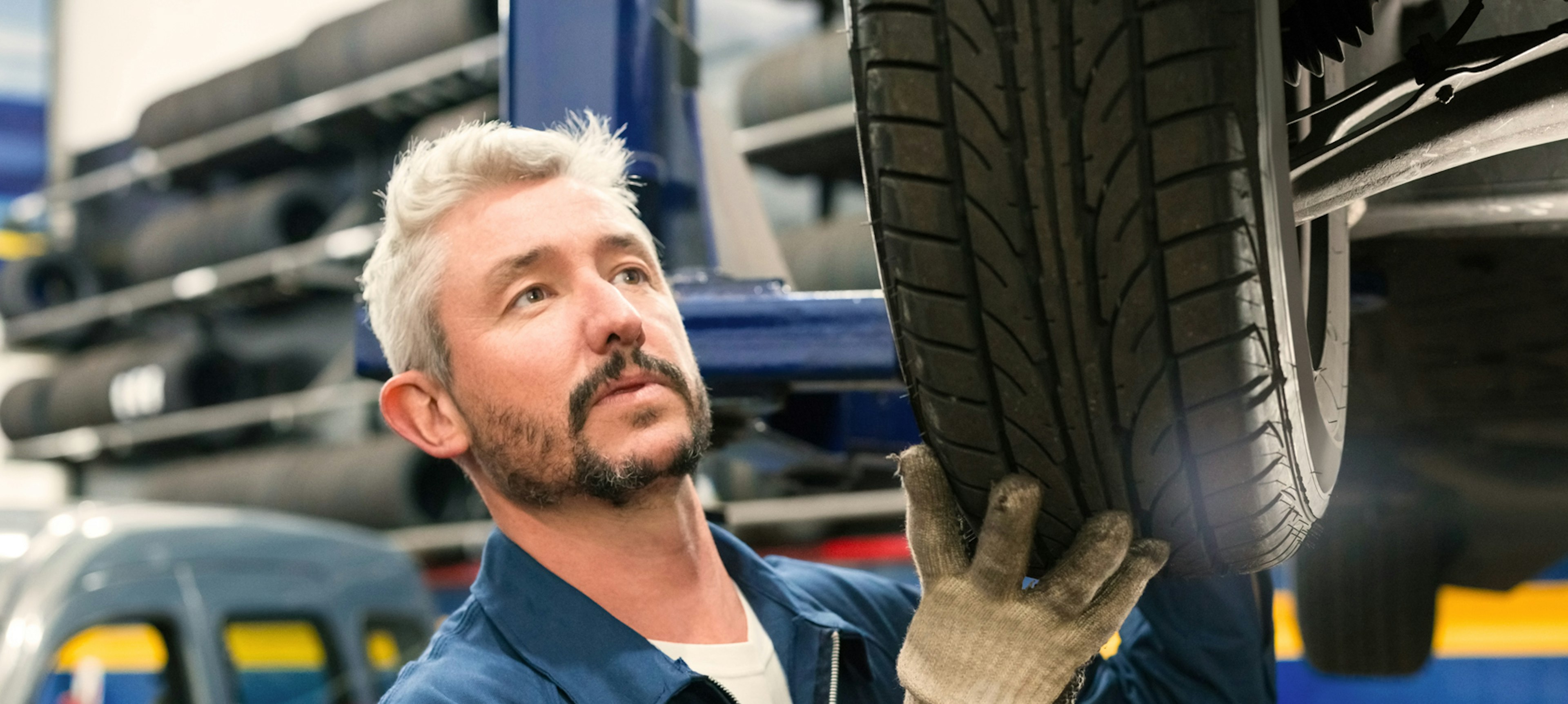This year’s International Roadcheck is scheduled for North America on May 14-16, 2024. What does that mean for your fleet, and how can fleet managers and drivers prepare? We talked to two of our experts to learn more about this yearly check for fleets, and what you need to know.
What is International Roadcheck?
International Roadcheck, or DOT Week, is a three-day, high-volume commercial vehicle inspection performed by the Commercial Vehicle Safety Alliance (CVSA). CVSA-certified personnel will inspect commercial vehicles and drivers in Canada, Mexico, and the United States at weigh stations, patrol pullovers, and temporary inspection sites to ensure vehicles are in full compliance and collect data.
Last year, CVSA inspected 59,429 commercial vehicles. Of these, 81 percent of the vehicles and 94.5 percent of the drivers had no out-of-service violations, and 34 percent of vehicles received a CVSA decal. Conversely, 19 percent of vehicles and 5.5 percent of drivers were pulled off the road due to an out-of-service (OOS) violation.
What do CVSA personnel inspect?
Inspectors use the routine North American Standard Level I Inspection, which thoroughly inspects everything from brakes, lighting, and steering to seat belt usage, ELDs, and the driver’s overall condition. In total, 37 points on both the vehicle and driver will be checked.
Roadcheck picks two violation categories to focus on each year. This year’s focus areas are tractor protection systems and alcohol and controlled substance possession. CVSA specifically selected these two focus areas because tractor protection systems are often overlooked during regular inspections, and the number of prohibited drivers in the U.S. Drug and Alcohol Clearinghouse (DACH) has been increasing substantially, making it more critical than ever for drivers to stay sober.
Some vehicles will not receive a Level I check but rather a Level II, III, or V inspection. Level II is a walk-around driver/vehicle inspection that is not as thorough as Level I; a Level III inspection only looks at the driver’s credentials, and a Level V inspection only looks at the vehicle. However, Level I is the most common—of the vehicles inspected during International Roadcheck 2023, over 60 percent were subject to a Level I inspection.
What happens if I pass (or fail) the CVSA inspection?
Drivers who pass the Level I or V inspection without critical violations may receive a CVSA decal, valid for three months. A vehicle with a decal will not be subject to re-inspection.
If an OOS violation is identified within the driver or the vehicle, both will be restricted from operating until the violations are corrected. The carrier may also be subject to fines or a downgraded safety rating.
For anyone nervous about OOS violations, Jason Kraus, our Director of Vehicle Acquisition & Lease Structure, notes, “Out of service instances only occur when a fleet does not have the correct preventative maintenance and pre/post check reviews. As long as the time and effort has been put in on the front end to maintain proper operation of the vehicle, they are avoidable.”
How can I prepare for International Roadcheck?
Last year, the top five OOS vehicle violations were brake systems, tires, defective service brakes, cargo securement, and lights, and the top five OOS driver violations were hours of service, false logs, canceled/revoked license, and no medical card.
To help identify violations before your fleet is pulled off the road, CVSA has published two cheat sheets—one for vehicles and one for drivers. Fleet managers should distribute these flyers to drivers and maintenance to ensure that everything is in good working order on the vehicle and that drivers are prepared for their inspections. Kraus points out, “With May so close, you should audit your preventive maintenance practices now, not the week before.”
If vehicles have any old parts or necessary replacements, such as a balding tire or poor brake friction, those fixes must be finished before International Roadcheck. As of April 1, 2024, CVSA has updated its OOS violation standards, so ensure that your employees have the most up-to-date guide and understand what is considered OOS.
With the added focus this year on tractor protection systems and impaired driving, CVSA has also created a flyer listing what parts of the system will be inspected. Be sure the tractor protection system is thoroughly checked and any issues (such as leaks or faulty valves) are repaired before inspections. While not driving impaired is easy enough, drivers should ensure any medication in the vehicle is in its original bottle with their name on it and register on the DACH website if they haven’t yet done so. Jenny Baker-Ford, our Manager of Fleet Maintenance, suggests, “Use the time before the Roadcheck occurs to make sure drivers are clear on your company policies about controlled substances and alcohol possession and use.”
While International Roadcheck may be nerve-wracking for even the most experienced fleet managers, maintenance employees, and drivers, it’s important to remember that inspections can happen anytime, any day of the year. The best way any fleet can prepare is by treating every week as if it’s International Roadcheck week. Stay on top of preventative maintenance, make sure drivers are educated and have all their necessary paperwork, and double-check your work with your fleet’s data.
A fleet management company can help you prepare for inspections of all kinds. Talk to Mike Albert Fleet Solutions to learn more about what we can do for your drivers.



